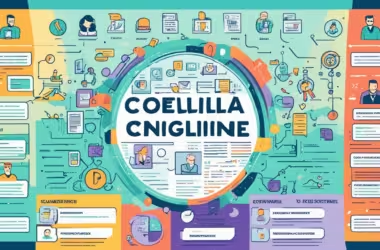The tech industry is booming, and skilled software engineers are in high demand. This surge in demand has led many aspiring individuals to consider a career in software engineering.
But with so many paths available to enter this field, a crucial question arises: is a software engineering degree the only way to go?
Advantages of a Software Engineering Degree
A software engineering degree offers several advantages for aspiring software engineers. Here’s a breakdown of some key benefits:
Strong Foundation in Technical Skills and Knowledge
Courses delve into essential areas like data structures and algorithms, programming languages (e.g., Java, Python), and software development methodologies (e.g., Agile, Waterfall).
This comprehensive curriculum ensures you graduate with a well-rounded understanding of the software development lifecycle and the tools needed to excel in the field.
Structured Learning Environment
Professors guide you through the curriculum, offer support and mentorship, and provide opportunities for hands-on learning through labs and projects.
This structured approach can be particularly beneficial for those who thrive in a classroom setting and appreciate clear learning objectives.
Preparation for Entry-Level Roles
The curriculum aligns with industry expectations, ensuring you possess the necessary skills and knowledge to hit the ground running in your first job.
Many degree programs also incorporate career services departments that help students with resume writing, interview preparation, and job placement.
Disadvantages of a Software Engineering Degree
While a software engineering degree offers a strong foundation, it’s not without its drawbacks. Here’s a closer look at some key considerations:
Time Commitment
A traditional software engineering degree typically takes four years to complete. This can be a significant investment of time, especially for those eager to enter the workforce quickly.
Financial Investment
Tuition fees, living expenses, and other associated costs can add up quickly, making a software engineering degree a substantial financial investment.
Scholarships, grants, and financial aid programs can help alleviate some of the financial burden, but it’s important to factor in the overall cost before embarking on this path.
Alternative Paths to Becoming a Software Engineer
While a software engineering degree offers a strong foundation, it’s not the only path to a successful career in software engineering. Several alternative routes can equip you with the necessary skills and knowledge to become a valuable asset in the tech industry.
Coding Bootcamps
Bootcamps offer an intensive and accelerated learning experience, typically lasting weeks or months. These programs focus on practical skills and technologies in high demand, such as web development, mobile app development, or data science.
Bootcamps can be a great option for those who want to enter the workforce quickly and are comfortable with a fast-paced learning environment.
Online Courses
Online courses provide a flexible and self-directed approach to learning software engineering skills. Numerous online platforms offer comprehensive courses on various programming languages, frameworks, and software development methodologies.
This option allows you to learn at your own pace and choose specific topics that align with your career goals. However, online courses typically require a high degree of self-discipline and time management.
Self-Directed Learning
Highly motivated individuals can pursue self-directed learning through a combination of online resources, tutorials, and personal projects. This route requires a strong foundation in programming concepts and the ability to identify and curate valuable learning materials.
While self-directed learning offers the most flexibility, it also demands a significant amount of initiative and independent study.
Choosing the Right Path
Ultimately, the best path for you depends on your individual learning style, budget, and career goals. Consider the following factors when making your decision:
- Learning Style: Do you thrive in a structured learning environment with professors and classmates, or do you prefer a more flexible approach that allows you to learn at your own pace?
- Budget: Can you afford the cost of tuition, fees, and living expenses associated with a degree program? Explore scholarship opportunities or consider the cost-effectiveness of alternative routes like bootcamps or online courses.
- Career Goals: What specific area of software engineering interests you? Research different bootcamps and online courses to find programs that align with your desired career path. A degree program can provide a broader foundation but may not offer specialized training in all areas.
Essential Skills for Software Engineers
Regardless of the path you choose, some essential skills are crucial for success in software engineering.
At the core lies a passion for coding and a strong desire to learn and adapt. Software engineering is a constantly evolving field, so a willingness to embrace new technologies and stay up-to-date on industry trends is essential.
Problem-solving skills are also paramount. Software engineers are constantly faced with challenges that require creative and analytical thinking to develop effective solutions.
Excellent communication skills are equally important, as you’ll need to collaborate effectively with team members, explain technical concepts to both technical and non-technical audiences, and document your code clearly.
Conclusion
Software engineering is a rewarding career path that offers exciting opportunities to create innovative solutions and shape the future of technology. While a software engineering degree provides a strong foundation, it’s not the only route to success.
Consider your learning style, budget, and career goals to choose the path that best suits you. The most important factors are your dedication to learning, your passion for coding, and your ability to adapt and thrive in this dynamic field.
FAQs
What are the benefits of a software engineering degree over alternative paths?
A software engineering degree offers a structured learning environment, and a well-rounded foundation in technical skills, and can prepare you for entry-level roles more directly.
Some employers may have a preference for candidates with a degree.
Can I get a software engineering job without a degree?
Absolutely! Coding boot camps, online courses, and self-directed learning can equip you with the necessary skills to land a software engineering job. However, you may need to demonstrate your skills and knowledge more extensively during the application process.
Which alternative path is right for me?
The best alternative path depends on your individual learning style, budget, and career goals. Consider your preferred learning pace, financial constraints, and desired software engineering specialization when making your decision.
What are the salary expectations for software engineers?
Software engineers typically enjoy competitive salaries. The exact salary can vary depending on experience, location, specific skills, and the company you work for.
You can find salary information for software engineering positions on websites like Glassdoor or Indeed.
What are some in-demand specializations within software engineering?
The software engineering field is vast, with many exciting specializations. Some in-demand areas include web development, mobile app development, data science, machine learning, and cybersecurity.
Is a software engineering degree a good fit for everyone?
Not necessarily. If you have a strong foundation in programming and are a quick learner, an alternative path might be a faster and more cost-effective option.
However, if you thrive in a structured learning environment or prefer a well-rounded education, a software engineering degree can be a valuable investment.
What resources can help me learn more about software engineering careers?
Numerous resources can help you explore software engineering careers. Online communities like Stack Overflow and forums dedicated to software development offer valuable insights and discussions.
Websites like the Bureau of Labor Statistics and professional organizations like the Association for Computing Machinery (ACM) provide career information and resources.






